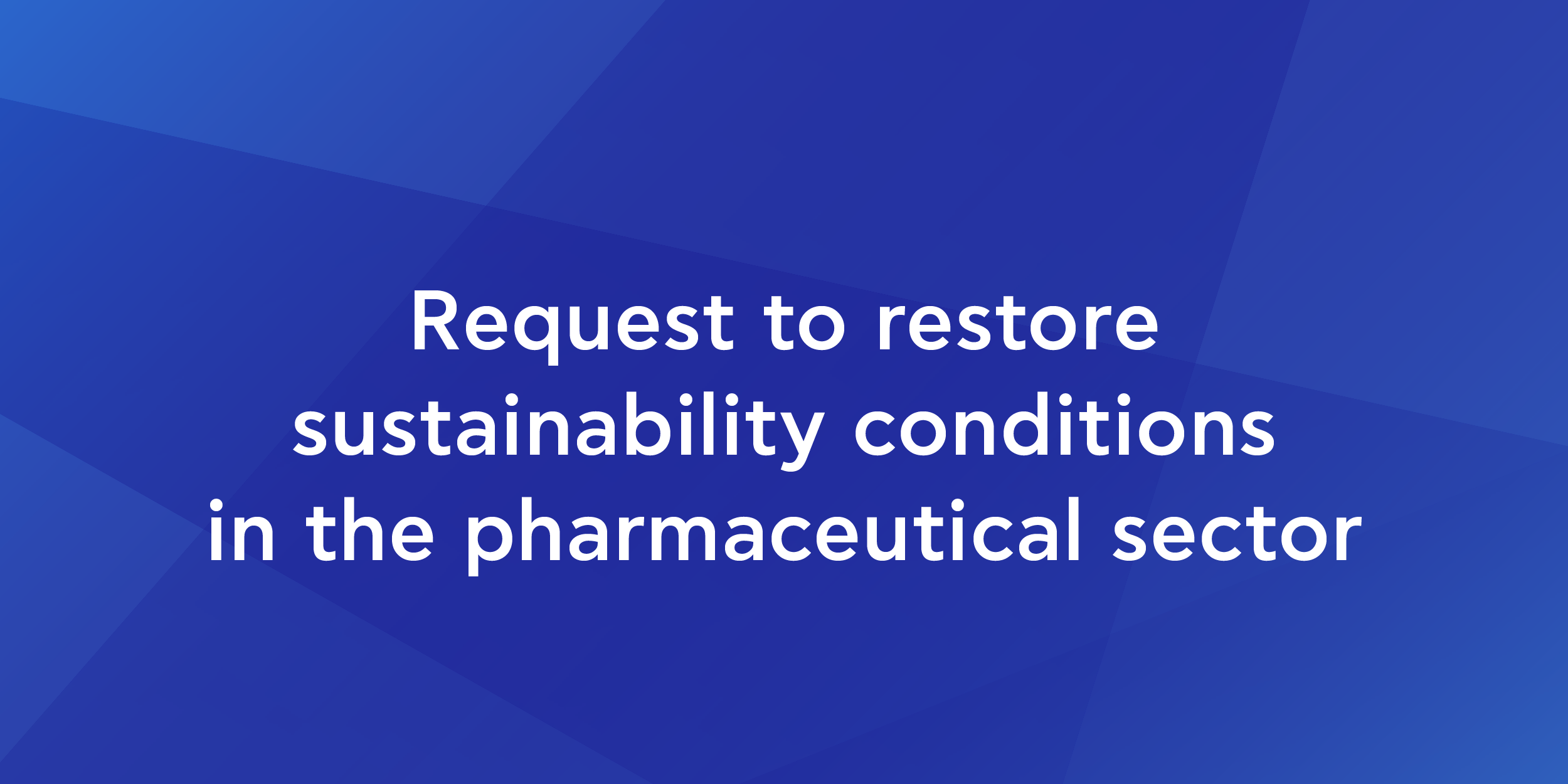Letter from PIF & AMCHAM Pharma Committee to the Prime Minister:
Dear Prime Minister,
At this particularly critical juncture for the pharmaceutical industry, we address you as the Board of Directors of PhARMA Innovation Forum (PIF) and the Committee of Pharmaceutical Companies of the American-Hellenic Chamber of Commerce, to express our deep concern about the impasse in which patients’ access to innovative treatments is leading and to request for your intervention to restore sustainability conditions in the sector. PhARMA Innovation Forum (PIF) and the Committee of Pharmaceutical Companies of the American-Hellenic Chamber of Commerce represent leading biopharmaceutical companies that provide therapies of high therapeutic value to patients with serious diseases and have an extremely significant footprint on the National Health System and the Greek society and economy.
Just in the past few days, the official data of the National Central Health Procurement Authority (EKAPY) were communicated to our companies, concerning hospital pharmaceutical expenditure for the first half of 2023, according to which the compulsory rebates borne by pharmaceutical companies due to exceeding the budget for medicines over 30 euros, amount to 83%, surpassing even the most pessimistic projections.
While we acknowledge the efforts of the Minister of Health, mr. Adonis Georgiadis, to find a solution to an issue that existed before his term of office, as well as the fact that fiscal margins are limited for previous years. However, it is obvious that the pharmaceutical policy followed –the only policy that has remained the same since the Memorandum– has now collapsed and is leading to fiscal derailment, disinvestment, and diminished patient access to existing and new innovative treatments.
It is a fact that in recent years the Government has recognized the seriousness of the issue, both in the public debate with your own positions on the issue, but also in practice by strengthening public pharmaceutical expenditure from national resources and taking some structural measures, which, however, will not be able to reduce compulsory refunds unless they continue with greater intensity and determination as time limits are now suffocating and the funding gap incalculable. If we take into account that the resources of the Recovery Fund have not been allocated in a way that could have strengthened the innovative pharmaceutical industry, such as clinical research, then it becomes clear that we are at ground zero where the innovative industry will not be able to bear these additional costs without painful consequences.
The consequences of these compulsory returns are very serious. They threaten the viability of our companies, the proper functioning of the market and the prospect of investment in clinical research, innovation and medical education, and social responsibility programs in which our companies are particularly active. The possibility of disinvestment from Greece is visible, with immediate negative consequences for the national economy. We are lead to a reality where the enormous heights of automatic refunds make the circulation of new medicines economically unviable, with significant consequences for patients’ health and the country’s integration into modern scientific developments and innovations. We are particularly concerned that patients already receiving treatment will be able to maintain access to the treatments they need in the future. We are already receiving many questions and pressures from the headquarters of our companies on this issue and we are making huge efforts to overcome them and maintain confidence in the prospects and capabilities of our country.
The recent proposal of the Government for an additional strengthening of the pharmaceutical budget for 2023 with € 20 million, combined with an extremely limited correction of the clawback exemptions by medicines under EUR 30, is far from solving the problem we are facing. At best, this minimal intervention by the government will keep the clawback close to 80% for 2023. The levels of refunds may now be contrary to EU law in relation to the free movement of goods in the EU.
The member companies of the PhARMA Innovation Forum and the Committee of Pharmaceutical Companies of the American-Hellenic Chamber of Commerce want to continue investing in the country, but the responsibility for Greek patients’ access to innovative treatments cannot continue to lie almost exclusively from the pharmaceutical companies.
We therefore ask for your intervention in order to promote the necessary actions aimed at:
- Reinforcing the available resources for the years 2023 and 2024 to ensure market sustainability and
- Initiating the dialogue for the formulation of a medium-term pharmaceutical policy strategy for the years 2025-2027 through a Framework Agreement between pharmaceutical companies and the government that will lead to a reduction of current expenditure and rational use of resources both from a clinical and financial point of view.
——-
Prime Minister,
Our member companies are committed to their mission and vision to continue serving all patients in Greece, a purpose to which we responded responsibly even in times of deep fiscal crisis in the country.
We strongly believe that, even at this last moment, an initiative of yours can break the current deadlock and help find truly sustainable solutions that will ensure Greek patients’ access to innovative medicines, without overburdening our industry.









